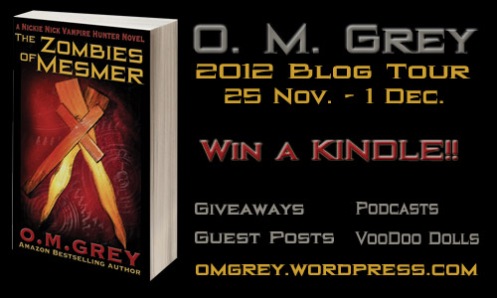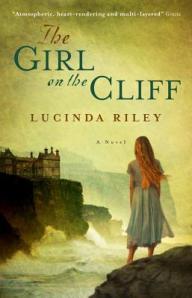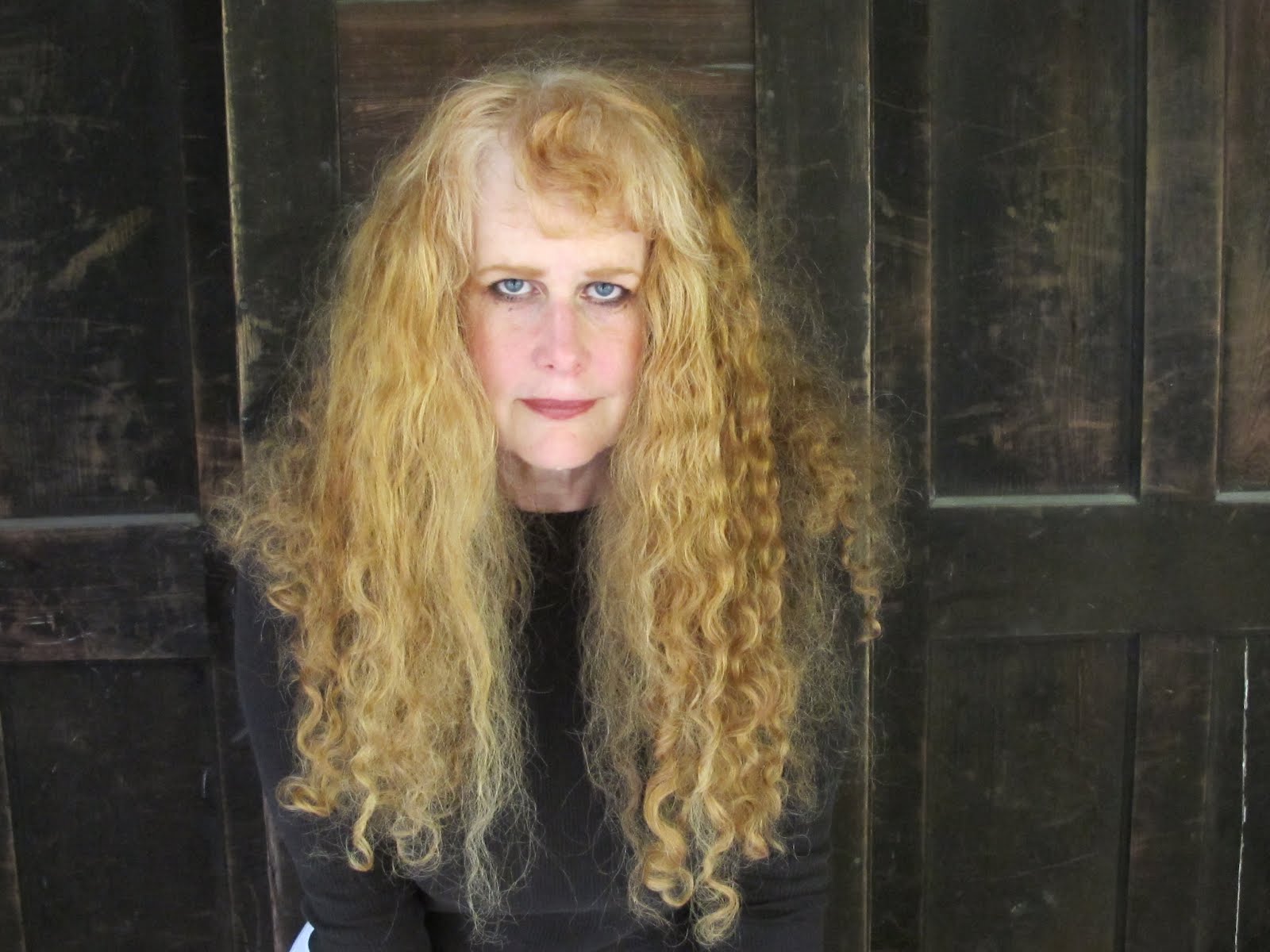Today, I have a giveaway and guest post from author Olivia M. Grey. But first, let’s learn a little bit about the author and where you can learn more about her work.
Nestled in the mountains of Northern California, Olivia M. Grey lives in the cobwebbed corners of her mind writing paranormal romance with a Steampunk twist. She dreams of the dark streets of London and the decadent deeds that occur after sunset. As an author of Steamy Steampunk, as well as a poet, blogger, podcaster, and speaker, Olivia focuses both her poetry and prose on alternative relationship lifestyles and deliciously dark matters of the heart and soul. Her work has been published in various anthologies and magazines like Stories in the Ether, Steampunk Adventures, SNM Horror Magazine and How The West Was Wicked.
Please find out more about Olivia and her work, listen to free podcasts, read free short stories and poetry, and get author-signed books on her blog Caught in the Cogs, Facebook, Twitter, and GoodReads.
Without further ado, please check out her guest post and her poetry:
I’m not much of a poet, really. Although I’m happy to say more than a few readers disagree with that statement. But I’ve never considered myself a poet until recently. I only write poetry under very specific conditions: the agony of a broken heart. I envy poets who can create such lovely imagery around normal daily life, or a flower, or a grecian urn. I just don’t think that way.
But when the pain of a shattered heart screams through every fiber of my being, I start thinking in verse. It usually begins with one line, some form of iambic meter since my degrees are in English Lit with a focus on the Renaissance, and that one line repeats in my head over and over and over until I sit down and write. That one line haunts me, and it will not go away until I write a poem. Most of my poetry is in a sort of verse and rhyme, which I’ve noticed isn’t terribly popular among modern poets or fans of poetry. But it’s rare that I write something in free verse. It happens, obviously as “New York Rain” is in free verse, but most of my work has a specific rhyme scheme and meter. Old school, I suppose.
I find safely in meter and inspiration in rhyme and alliteration and repetition. The poem I’m most proud of is called “My Heart Still Wants to Believe,” and it was inspired by and patterned after Poe’s “Annabel Lee.” It chronicles the aftermath of an abusive relationship that ended in assault and cruelty, focusing on the struggle of conflicting emotions that follows a betrayal of that magnitude.
In addition to poetry, I also write dark fiction, usually with some romantic element, like the steampunk retelling of the “Briar Rose” (aka “Sleeping Beauty”) fairy tale. “The Tragic Tale of Doctor Fausset” also has elements from Doctor Faust in it as well. I podcast fiction every Monday on my site, short fiction like this as well as serialized novels, and I also podcast nonfiction sex & romance issues every Friday. Along with this short story, you will hear me read three poems, “All I See Is Your Absence,” “Oh, Endless Night,” and “Look Into My Eyes,” which is also printed below.
Enjoy listening!
Listen to “The Tragic Tale of Doctor Fausset” here!
You can listen to more podcasted fiction and nonfiction on my blog as well as iTunes and Feedburner.
“New York Rain,” below, is my most popular poem to date. It is still in the Bar None Group’s Hall of Fame over a year later and won an award, so that is the one I’m giving away along with a copy of Caught in the Cogs: An Eclectic Collection of short stories, poetry, and relationship essays. The second one I’m sharing, “Look Into My Eyes,” was featured on the SNM Horror Mag’s Dark Poetry selection. I hope you like them.
"New York Rain: Warm summer night in New York City Rain falling Landing on my cheek Foreshadowing the tears That would be there tomorrow. A gentleman, you said. Friendship, you said. Respect, you said. And I believed. The heat in your eyes convinced me. Now silence. Yet, New York. The beauty of New York The intensity of a moment The promise of magic Lost. An illusion of the past, For this moment is empty Except for the tear That echoes the rain That framed the kiss. There just yesterday. ----- "Look Into My Eyes" “Look into my eyes,” He would say to me. Exploring Sacred Sexuality. “Look into my eyes,” As our bodies danced, Mingling of our souls, Put me in a trance. “Look into my eyes,” As he’d thrust inside, Gazing down at me Surging with the tide. “Look into my eyes” How I did believe, When he spoke those words, That he’d never leave. “Look into my eyes. You can trust in me. Now release your soul; Give your heart to me.” “Look into my eyes, Don’t see what’s truly there. Believe these loving lies, Not that I don’t care.” “Look into my eyes. Now I’m in control. Look into my eyes, While I rape your soul.”
Please enter to win the copy of Caught in the Cogs: An Eclectic Collection along with the handwritten, matted “New York Rain,” ready for framing. Just leave a comment below and/or ask me a question to enter. The contest will run until the end of the week.
Don’t just stop there! You can still enter to win a Kindle at Bitten By Books as well as the other prizes this week. Follow all the links and find the entire schedule.
Peace.
Thanks so much for sharing your poetry with us.
Buy The Zombies of Mesmer on Amazon in paperback or the Kindle. Buy Avalon Revisited on Amazon in paperback or on the Kindle, also available via Barnes & Noble and wherever books are sold. Buy Caught in the Cogs in paperback or on the Kindle.
To Enter for the giveaway of a paperback copy of Caught in the Cogs, leave a comment by Dec. 2 at 11:59 PM EST; Open Worldwide.















 With my teaching and professional responsibilities consuming only three days a week, I could block out significant amounts of free time for research and writing. My work station, set in an alcove, includes good overhead lighting and a comfortable swivel chair. What I like best about this arrangement is that it’s downstairs (I live in a townhouse), away from all window views and other distractions in the upstairs living quarters.
With my teaching and professional responsibilities consuming only three days a week, I could block out significant amounts of free time for research and writing. My work station, set in an alcove, includes good overhead lighting and a comfortable swivel chair. What I like best about this arrangement is that it’s downstairs (I live in a townhouse), away from all window views and other distractions in the upstairs living quarters. On this lower level is the family room with sliding doors out to the patio, but my back is to all that and so I can easily concentrate on what I’m doing. My re-energizing breaks from writing are either a power nap on the nearby couch or a half hour on the treadmill. An occasional cup of hot green tea is another good, healthy stimulant to keep me going.
On this lower level is the family room with sliding doors out to the patio, but my back is to all that and so I can easily concentrate on what I’m doing. My re-energizing breaks from writing are either a power nap on the nearby couch or a half hour on the treadmill. An occasional cup of hot green tea is another good, healthy stimulant to keep me going.
















 by tweeting about your purchase:
by tweeting about your purchase:

 About the Author:
About the Author:



